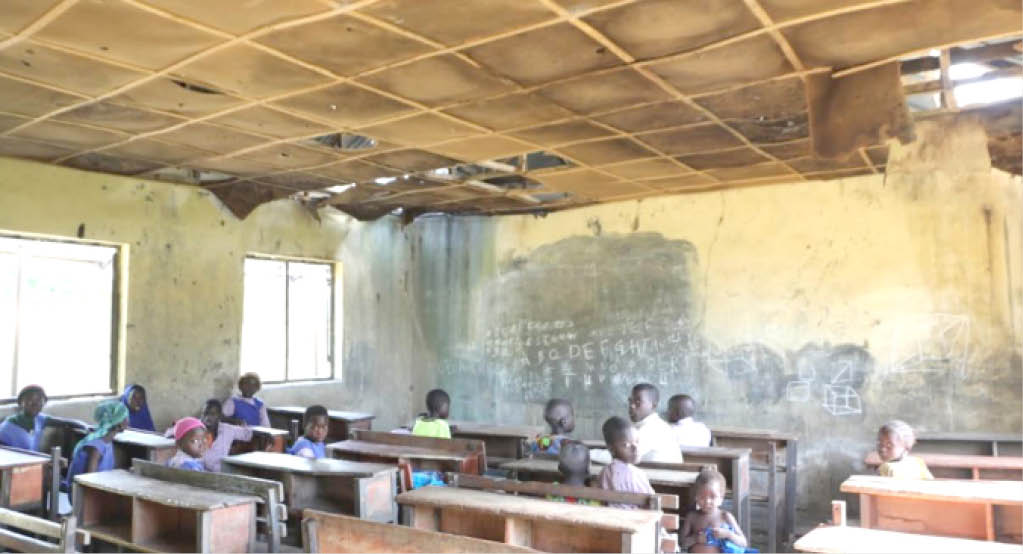Stakeholders in the education sector have flayed the FCT Minister, Nyesom Wike, over moves to purchase 1000 laptops for schools in the territory, when many of the schools are without adequate manpower.
It would be recalled that the FCT Executive Council, chaired by Wike, had at its last meeting, approved the procurement of laptops for secondary schools in the nation’s capital, arguing that the move was to ensure digitalization in the schools, but the stakeholders described such moves at the expense of manpower, especially teachers, in those schools as a misplaced priority.
Some of the stakeholders, who spoke with our reporter, said there were some schools, especially in the rural communities that were facing inadequate teachers, a problem which, they said, the administration should have prioritised over embarking on laptop procurement.
A parent, Mrs Rebecca Adebisi, who is also a deputy director in one of the schools, advised the minister to shelve the laptop idea and start the process of employing more teachers to bridge the gaps in most of the schools.
She noted that there were schools, especially in the rural communities, where one teacher taught up to four to five subjects, wondering what computers would do in such a school.
She said, “To me, the idea of purchasing laptops for schools in the FCT is a misplaced priority for now, because there are some schools, especially in the rural areas where they lack teachers in virtually all the subjects and one would expect the FCT administration to prioritise employing more teachers for such schools.”
Another parent, Muazu Abdulkarim, spoke on lack of adequate infrastructure in some of the schools, especially in the rural areas, which has been affecting children’s learning.
He said the absence of such infrastructure had also made learning unconducive for the students, adding that he expected the FCT administration to give priority to such areas and equip such schools with the needed infrastructure.
He said, “For example, if you go to some of the schools, especially in rural communities, you will discover that JSS 1 to 3 or primary 3 to 6 are combined in a single classroom with only one or two teachers; what will a laptop do for such a school?
“Three weeks ago, I came across a school, in one of the area councils, where some students at the junior secondary level were combined in a single classroom to receive lessons, while some of them were even sitting on the bare floor due to lack of desks and classrooms.”
According to him, laptops would be useless for such students, who were even struggling for where to sit, adding that the government should rather employ additional teachers and provide the needed infrastructure rather than laptops.
Malam Yakubu Ibrahim Ndagi, a retired school principal, who spoke with our Abuja Metro, said inadequate infrastructure and manpower had been the major challenges facing many schools in the territory.
“For example, if you go to Government Secondary School, Yebu in Kwali Area Council, if you go to Dei-Dei Junior Secondary School, if you go to Junior Secondary School, Anguwar Dodo in Gwagwalada Area Council, these schools are facing inadequate infrastructure, which the FCT administration should have prioritised by providing the needed infrastructure and employed teachers for them rather than purchasing laptops,’’ he said.
The chairman of the Parents Teachers Association (PTA) in the FCT, Alhaji Abubakar Usman, also said purchasing laptops for schools in the territory was a misplaced priority.
He said the government should rather prioritise the provision of infrastructure and manpower, especially in the rural communities across the six area councils.
“I think the government should rather prioritise infrastructure and recruit more teachers as well as build more classrooms in order to make learning more conductive for the children, especially in the rural areas,” he said.
He added, “If you go to some schools, especially in some rural areas, you will discover that some students/pupils sit on the bare floor, while teachers have no desks or chairs to sit on, which is quite unfortunate.”

 Join Daily Trust WhatsApp Community For Quick Access To News and Happenings Around You.
Join Daily Trust WhatsApp Community For Quick Access To News and Happenings Around You.


